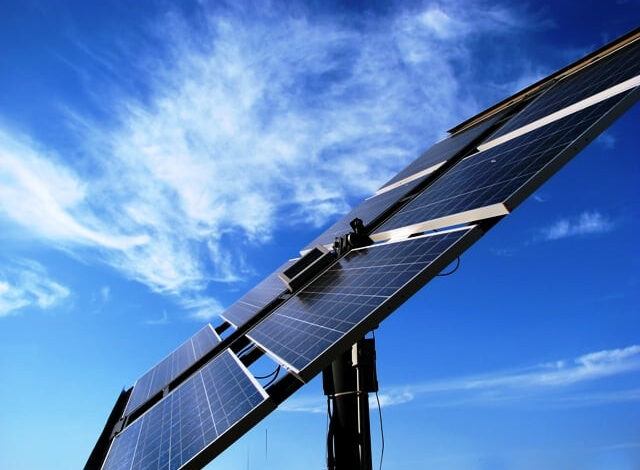Reversal of policy affects the solar transition

With a growing gap between policy direction and implementation threatening to sabotage the nation’s clean energy transition, Pakistan’s electricity sector is at a turning point.
Residents and the business community are now doubting the state’s commitment to renewable energy as a result of the government’s recent reversal of course, especially in the net metering regime, which once supported rooftop solar installations as a long-term solution to rising electricity costs and energy insecurity.
While installed generation capacity surpasses 46,000 MW, the nation’s peak summer electricity demand is approximately 29,000 MW. However, because to inadequate grid infrastructure, underutilisation of capacity, and growing dependency on imported fuels, generating is still inefficient. Although it was formerly thought to be a potential alternative, solar energy presently confronts governmental barriers even though it will account for about 5% of Pakistan’s total electricity generation by 2025.
Between 2022 and 2024, the number of solar installations—especially rooftop systems—rose as more homes and businesses made net metering investments after being enticed by government incentives and high buyback rates. Over 280,000 households were registered under the program, and net-metered capacity increased from little over 300 MW in 2021 to 2,813 MW by the end of FY25, according to government figures. However, the solar community has been rocked by the government’s recent decision to cut the repurchase fee from Rs27 to Rs10 per unit.
According to Mian Sohail Nisar, Patron-in-Chief of the Pakistan Industrial and Traders Associations Front, “the solar transition, once seen as a cornerstone of Pakistan’s energy future, is now treated like an inconvenience.” “The government supported this change, but it now opposes its long-term integration into the official power structure. Investor and public trust are both weakened by this type of policy inconsistency.
Energy analysts argue that growing financial strain on the national grid is the reason behind the updated net metering legislation. Utility firms say they are finding it difficult to pay for fixed infrastructure expenditures as solar users lessen their reliance on the grid and sell excess power back at high prices. The expected cost burden transferred to grid-dependent users in 2024 alone was Rs159 billion. If nothing is done, projections indicate that this deficit might increase to more than Rs4,000 billion over the course of the following ten years.
Poor planning, not solar energy, is the issue, according to a former power industry executive. “The distribution network was not upgraded by the government to accommodate reverse power flows. They are now accusing solar consumers of causing losses that are really the result of old infrastructure and technical inefficiency.
He thinks there may be some theoretical value to the new gross metering scheme, which costs customers individually for electricity that is imported and exported, but it was implemented too quickly. “Stakeholders should be consulted when implementing policies like these. Rather, we are witnessing a hasty response to financial stress, which may deter future clean energy investments.
Customers feel deceived by the government’s past sponsorship of solar panel installation. Many made significant investments in battery storage and hybrid inverters in the hopes of lowering their reliance on the grid and taking advantage of attractive net metering rates. They now worry about declining returns, ambiguous billing practices, and even distribution corporations secretly replacing smart meters.
Energy policy has long been inconsistent. Whether for hydropower, LNG ports, or renewable energy, each government has made bold plans over the last 20 years, only to scrap or rescind them in response to shifting political landscapes, utility company pressure, or changes demanded by the International Monetary Fund (IMF).
The largest shortcoming, according to energy analyst Syed Farid Hussain, is the absence of a cohesive transition path. “Achieving a successful transition to sustainable energy requires coordinating price strategies, consumer protection, and system enhancements. Reforming things piecemeal is not a strategy.
He continued by saying that the state is under increasing pressure to either hike tariffs or reduce losses because Pakistan’s circular debt in the power sector has surpassed Rs2.6 trillion. Unfortunately, he said, the government seemed to be putting the onus on solar adopters—those who followed its own advice—instead than fixing distribution companies’ inefficiencies or combating power theft.
The current situation calls for a structural strategy that cannot be undone in a few years for whatever reason. “Pakistan needs energy clarity, not policy U-turns.” We run the danger of ignoring the very solutions that could drive our future if we don’t do that,” Sohail Nisar continued.
Whatsapp, Facebook, Twitter, linked email